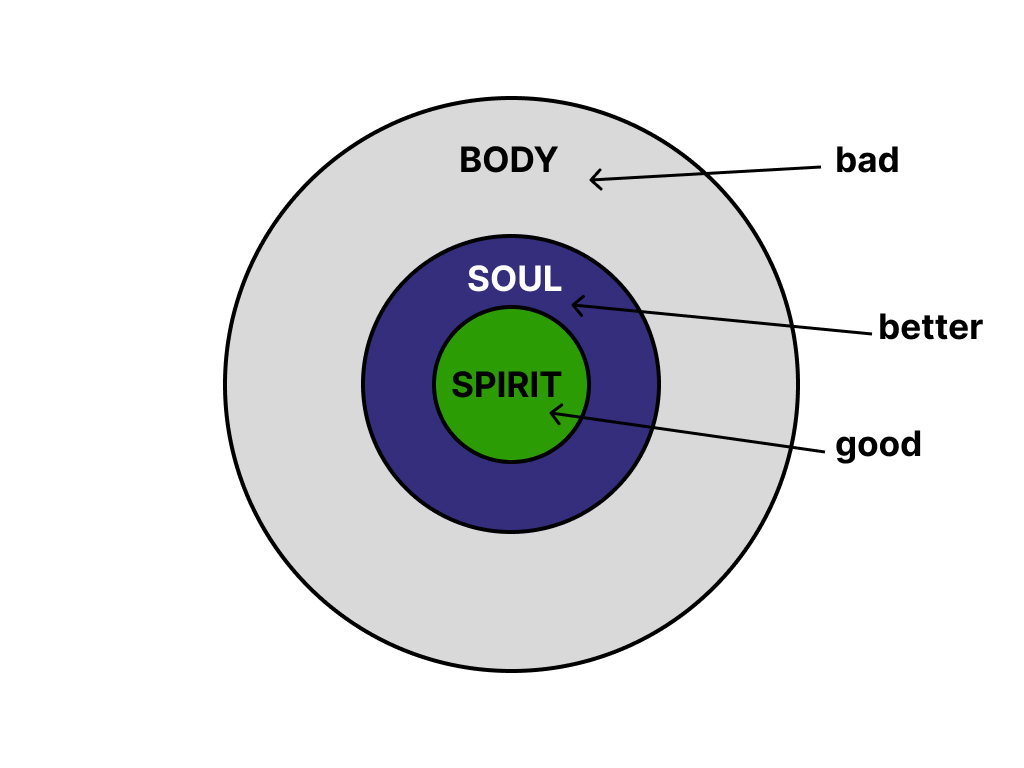Soft-Gnosticism - the Fever of Modern Christianity
Ryan Hayden • August 26, 2022
churchlife revival gnosticism
What if I told you that an ancient heresy that the apostle John fought against is now mainstream in the American church? I believe modern Christianity is suffering from a fever I call soft-Gnosticim, and most of the time we don't even know it.
Ancient Gnosticism
Here is wikipedia's summary of gnosticism:
Gnosticism is a collection of religious ideas and systems which coalesced in the late 1st century AD among Jewish and early Christian sects. These various groups emphasised personal spiritual knowledge (gnosis) above the orthodox teachings, traditions, and authority of religious institutions. Viewing material existence as flawed or evil, Gnostic cosmogony generally presents a distinction between a supreme, hidden God and a malevolent lesser divinity (sometimes associated with the Yahweh of the Old Testament) who is responsible for creating the material universe. Gnostics considered the principal element of salvation to be direct knowledge of the supreme divinity in the form of mystical or esoteric insight. Many Gnostic texts deal not in concepts of sin and repentance, but with illusion and enlightenment.
So, the Gnostics were a group of ancients that basically believed two things: - The material world is bad and the spiritual world is good. - Salvation can be found only through secret spiritual knowledge and a higher spiritual experience.
During the early church years, they infiltrated Christian churches and started teaching that Christ did not have a body (because bodies are bad) and that only through there secret teaching and spiritual experiences could true Christian enlightenment be reached. This is why John said things like:
And every spirit that confesseth not that Jesus Christ is come in the flesh is not of God: and this is that spirit of antichrist, whereof ye have heard that it should come; and even now already is it in the world. 1 John 4:3
If you've ever wondered why there is such an emphasis on Christ coming in the flesh it is because they were fighting against this particular heresy. Of course, if the material world is bad, then the enjoyment of the material world is bad too, which is probably why Paul warned about false teachers who would do things like:
Forbidding to marry, and commanding to abstain from meats, which God hath created to be received with thanksgiving of them which believe and know the truth. 1 Timothy 4:3
And why Paul emphasised things like this:
For every creature of God is good, and nothing to be refused, if it be received with thanksgiving: 1 Timothy 4:4
Because the goodness of the material world was under attack by these heretics who believed that the material was bad and the spiritual was good.
Gnosticism in the church
I believe gnosticism never went away, and that it has metastasized in our churches, and we don't even realize we are carrying around these heretical tumors. Let me give you just a few examples:
Teaching on the body, soul, spirit
Growing up in church and in Bible college, I was often told to draw a circle, with another circle within it, and a third circle in that. I was told that we were made triune with a body soul and spirit, as God is triune. That the outside circle represents the body, the middle circle represents the soul, and the inner circle represents the spirit. Then I was taught to evaluate things by whether they appealed to my body, soul or spirit. Things that appealed to my spirit were good, things that appealed to my body were bad.

The problem is this isn't what the Bible teaches. The Bible teaches that God made everything for us to enjoy and that all of His creation (the physical world) is good.
A natural extension of this was some teaching against...
Contemporary music
We were taught that one of the problems with contemporary music is that it makes our foot tap. It appeals to the flesh. But is it bad for something to appeal to the flesh? Lots of food appeals to my flesh, and God made it to be enjoyed with thanksgiving.
I think there are legitimate arguments to be made against using contemporary music in church - but this is just a lazy version of soft-Gnosticism.
Embarrassment about sex and marriage.
Do you know what else appeals to my flesh? Marriage appeals to my flesh. God designed it to appeal to my flesh and calls it "a good thing" and "honourable" in multiple passages.
Marriage is honourable in all, and the bed undefiled: but whoremongers and adulterers God will judge. Hebrews 13:4
God designed our sexual desires to create families and strengthen our marriages. But if we have a gnostic view of the world and our bodies, we can be made to feel guilty for things God called very good and wholesome.
All of this pours over into our experience of church where we have an...
Emphasis on personal experiences over doctrine
Nearly everything about the modern evangelical/fundamentalist church is about experience. The music we sing talks about mystic experiences with Christ:
[!song] And He walks with me, And He talks with Me And He tells me I am His own And the joy we share as we tarry there None other has ever known
What is that? Where do we see it in the New Testament?
This stuff is subtle, but when you start to see it, you see it everywhere:
- When someone talks about their "quiet time" as if God is supposed to audibly speak in his heart every day.
- When someone says "God showed up today" what does He mean? He's talking about an experience, about a feeling.
It's all a form of soft-Gnosticism that elevates experience over doctrine, feelings over faith, and makes our entire religion both subjective and just out of reach. And nowhere is it codified more than in the system I'd call...
Modern revivalism
So much of modern baptist Christianity is based on this idea that we need to work up an inner religious experience. If we could just pray longer, if we could just sing down the Spirit, if we could just have the organist play one more stanza of "Just As I Am." This system sets sanctification as something to be obtained by serial crisis. It's why so much emphasis is placed on "the altar call" in some of our churches.
In its weirdest form, "Revival" becomes an object of worship and true revival is always just out of reach. Never mind the fact that "revival" doesn't appear once in the New Testament (either in word or in concept.). Never mind the fact that the entire system isn't found in scripture and is totally manmade. Never mind the fact that it's all a distraction from what the Bible does prescribe.
Revival makes us feel good, revival is what we know, so play another verse.
Breaking the fever
What would it look like if you divorced your church from this soft-Gnosticism? What if you can break the fever and come back to a normal temperature? I'm still working through this in my own life and ministry, but here are some preliminary findings: - You are free to focus on the doctrine found in scripture, and you do not feel the need to make every service into a crisis of faith. - You are free from the guilt of never achieving "revival." - You don't have to feel like a second class Christian because you have never reached the elusive "higher life." - You can focus on just doing what God says and walking with Him every day. Reading the scripture, spending time in prayer, shaping your life, family and church with godly habits. - You aren't guilty about enjoying the good physical things of life, and can enjoy what God has given you with thanksgiving. - Your focus shifts from yourself to the gospel.
The best spiritual Tylanol I know to break this fever is just the New Testament. Try to stop reading it through the lens of your religious traditions and just read it. Live in it. It may take years, but I think the fever will break, and when it does you'll realize the daze you have been in.

Comments powered by Talkyard.